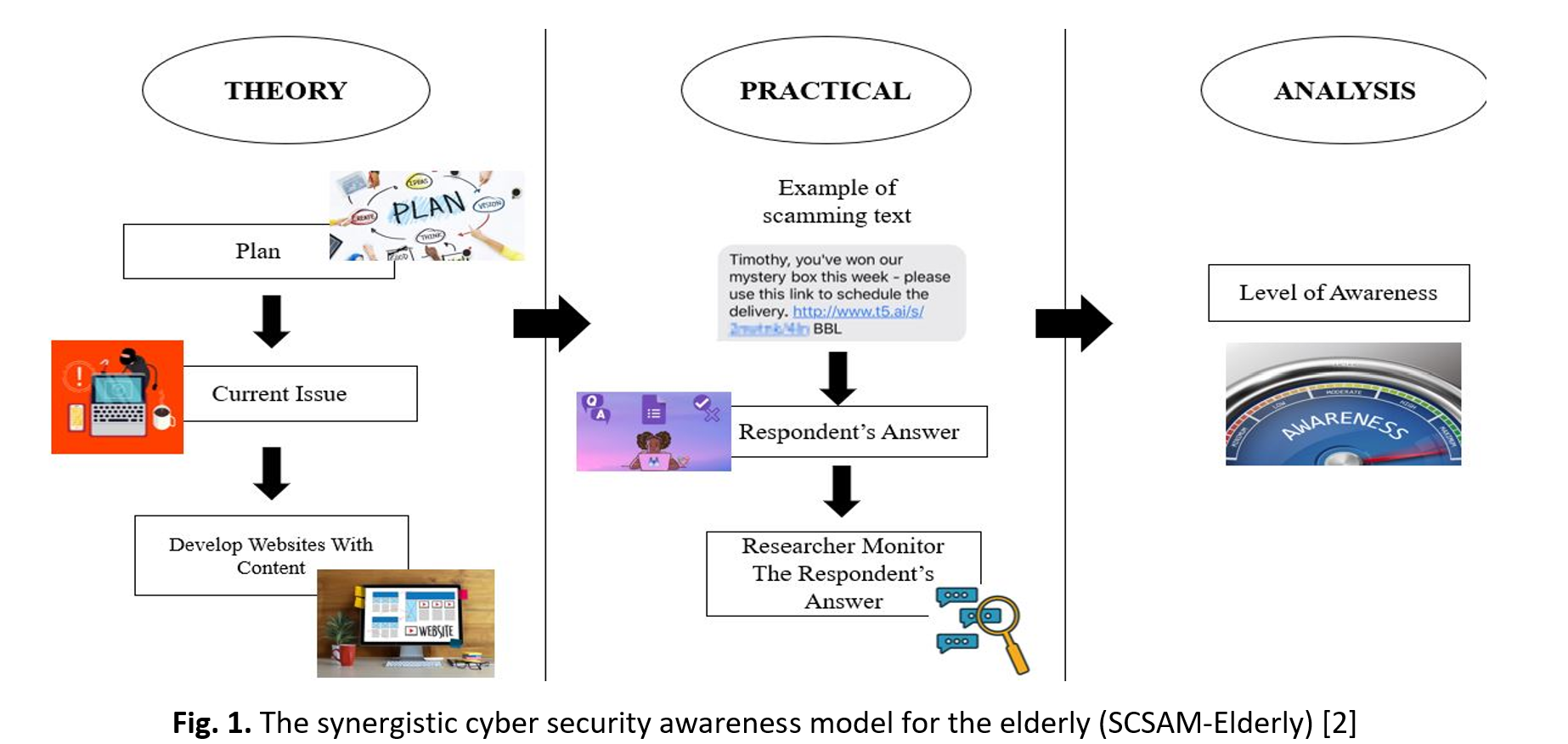A Light Review on Cyber Security Awareness Models for the Elderly
DOI:
https://doi.org/10.37934/araset.44.1.3145Keywords:
Awareness, Cybercrime, Cybersecurity, ElderlyAbstract
Millions of people use the internet daily, including the elderly, who are among the most at-risk groups for cybercrime, such as fraud, hacking, and cyberbullying. However, there has been a lack of cybercrime studies focusing on them. Additionally, various cybersecurity models deployed by governments and organizations are found to be inconvenient and too technical for the elderly, especially those with impairments or conditions that require special attention. This subsequently leads to an increasing number of cybercrimes. Therefore, this paper presents a light review of existing cybersecurity models suitable for the elderly. Three methods were used to review existing cybersecurity awareness models. First, a feasibility study was conducted following several works of literature related to cybersecurity, types of cybercrimes involving the elderly, characteristics of the elderly commonly targeted by cybercriminals, cybersecurity awareness models, and the elderly's learning styles. Second, based on the literature review, the elderly's learning styles were analyzed. Finally, the cybersecurity awareness model suitable for the elderly was chosen and analyzed with respect to their phases, validity, and technicality. In conclusion, the SCSAM-Elderly was selected as the most suitable model for the elderly to learn and spread awareness of cybersecurity. This study could increase cybersecurity awareness and encourage educating the elderly to maximize their knowledge of cybersecurity. The findings from this study can guide organizations, agencies, governments, and educational institutions in their endeavours to educate the elderly about cybercrime and cyberattacks.
Downloads




























